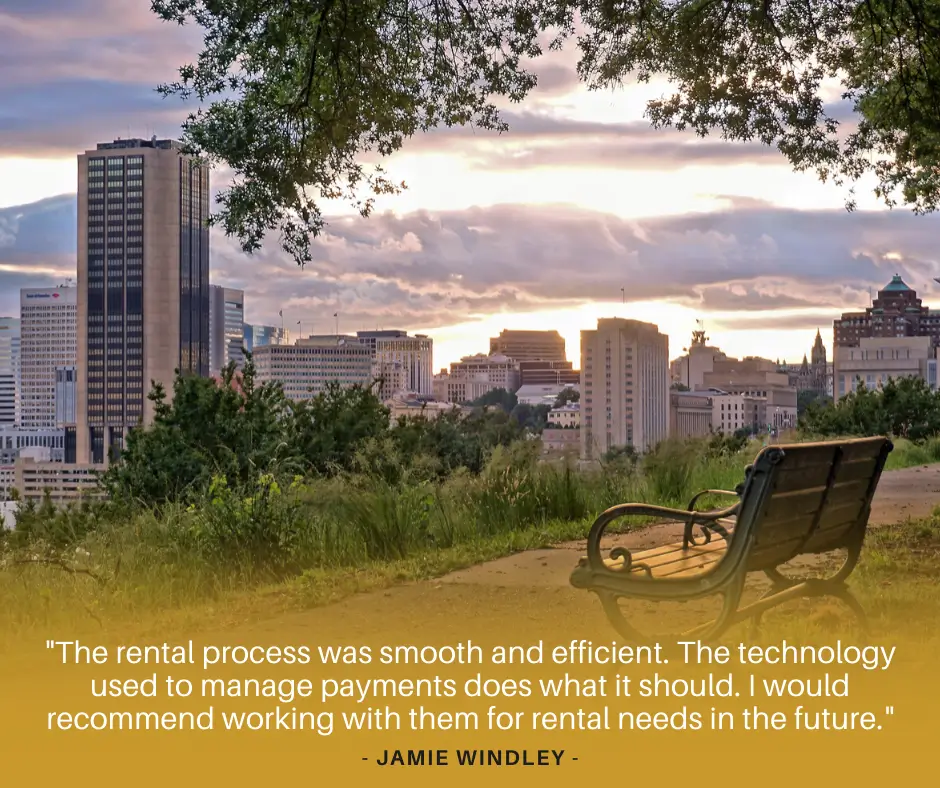Having a portfolio of rental properties is a great way to generate long-term wealth and earn a steady income from rent. But it's not enough to just buy more rental properties to build a successful rental property portfolio. To achieve this, you need to plan effectively, stay informed about market trends, have solid financing plans, and possess strong property management skills.
At PMI Richmond, we’ve helped countless real estate investors and landlords scale their rental portfolios efficiently in the Richmond, VA area, a market known for its stable rental demand and promising property appreciation. In this article, we’ll share proven strategies for scaling your rental portfolio, balanced with the challenges you might face, and how to overcome them for long-term success.
Key Takeaways
- Smart financing and understanding your debt service coverage ratio are crucial to acquiring more properties without overleveraging.
- Effective property management software and tenant screening processes streamline operations and ensure steady rental income.
- Keeping an eye on market trends and conducting ongoing rental market analysis allows you to make informed investment decisions.
Understanding Your Rental Property Portfolio Growth Potential
The first step to growing your rental portfolio is to determine the value of your current assets. The market value of your current properties and their net operating income are two important factors that affect your capacity to use equity through a cash-out refinance or a home equity loan. These financing solutions enable you to purchase property without depleting all of your cash.
Richmond’s real estate market offers stable appreciation and relatively low vacancy rates, making it an attractive place for real estate investing. Yet, market fluctuations and local market downturns can still occur, so diversification across property types from multi-family properties to commercial properties or even vacation rentals helps spread risk and supports portfolio growth.
Financing Strategies: Securing Capital for Expansion
For many landlords, securing funding for more than one property can be challenging. If you only want to buy one property at a time, traditional loans may not be suitable for you. However, portfolio loans are designed for investors who own multiple properties. These loans look at the overall health of your real estate holdings. They generally use your annual rental revenue and the debt service coverage ratio (DSCR) as part of their underwriting.
Understanding DSCR is critical; it measures how well your rental income covers mortgage payments and operating expenses. A higher ratio means you’re less likely to face cash flow problems, making lenders more comfortable approving loans. If you’re considering a hard money loan or cash out refi, be aware these come with different costs and risks but can provide fast capital for acquiring additional properties quickly.
Partnering with a tax professional can also help maximize tax benefits associated with owning real estate, including deductions on mortgage interest and property taxes, which improve your overall cash flow and return on investment.
Building a Solid Investment Strategy for Portfolio Growth
Buying new properties is only part of scaling. You also need to buy the correct properties and take good care of them. A good investing plan is to buy properties that make money and fit with your investment goals. The well-known BRRRR strategy (Buy, Rehab, Rent, Refinance, Repeat) is one way to speed up portfolio growth by using cash more efficiently.
Diversifying your portfolio across different property types reduces exposure to market risk. Single-family homes may offer easier management and consistent tenants, while multi-family properties and commercial properties can provide higher passive income streams but often require more active management and expertise.
Ongoing rental market analysis using data analytics can uncover high rental demand areas or emerging neighborhoods with strong potential for property appreciation. Richmond’s neighborhoods vary in rental demand and price points, so staying informed is key to making informed investment decisions.
Mastering Property Management and Operations
One of the biggest challenges in scaling a rental portfolio is managing multiple properties efficiently. That’s where technology and systems come in. Utilizing property management software can automate many tasks, including rent collection, maintenance tracking, and tenant screening.
A smooth tenant screening process is essential to secure reliable tenants, which lowers vacancy rates and reduces turnover costs. Happy tenants who experience prompt maintenance and fair management are more likely to stay longer, creating a steady rental income stream.
Effective property management also means proactive maintenance and regular inspections to protect property values and avoid expensive emergency repairs. Building strong relationships with trusted contractors ensures that repairs happen quickly and cost-effectively. Navigating Risks and Challenges in Portfolio Expansion
Every growth plan comes with some risk. Market downturns, unforeseen vacancies, or rising interest rates that affect your mortgage payments are all possible setbacks. By investing in various property types and locations in Richmond, you can protect your portfolio against dangers that are exclusive to certain places.
Working with additional investors or partners might help you share the work and the danger of losing money. The collaboration also gives you access to more resources and information that you would not be able to get on your own.
Monitoring your risk tolerance and having a clear risk management plan will prepare you to respond to challenges swiftly, protecting your personal assets and ensuring your portfolio’s resilience.
Why Richmond is a Great Market for Scaling Your Rental Portfolio
Richmond, VA, has a solid economy, consistent job growth, and a growing population, all of which make rental demand high. Compared to bigger cities, the city has a comparatively low market value, which makes it easier for investors to get into the market and buy more homes.
The local laws in Richmond support landlord rights while also requiring responsible property management, making it essential to stay informed about regulations and tenant protections. Using expert property management companies like PMI Richmond can help you navigate these complexities effectively.
Take Your Rental Portfolio to the Next Level
Growing your rental portfolio is a difficult but rewarding process. Smart finance choices, well-planned investment strategies, and good property management are all important for success. PMI Richmond is a specialist in helping investors like you manage and expand their real estate investments in Richmond, VA. We do this by providing expert advice, technology-driven management, and knowledge of the local market.
Ready to take the next step? Visit our Services page to learn how we can support your portfolio growth, or reach out on our Contact Us page to discuss your unique needs.
Frequently Asked Questions (FAQs)
Q1: How can I use my existing properties to secure financing for more properties?
A1: You can leverage the equity in your current properties through options like a cash-out refinance or a home equity loan. Lenders evaluate your portfolio’s net operating income and debt service coverage ratio to determine loan eligibility, allowing you to access capital for new acquisitions.
Q2: What is the importance of tenant screening in scaling my rental portfolio?
A2: Tenant screening helps ensure reliable tenants who pay rent on time and maintain the property. This approach reduces vacancies, protects your property values, and guarantees steady rental income, which is crucial when managing multiple properties.
Q3: How do market trends affect my investment strategy?
A3: Understanding market fluctuations like rent growth and local economic factors helps you adjust your portfolio to maximize returns. For example, rising rents in high-demand areas can improve cash flow, while signs of a market downturn may signal the need to hold or diversify.
Q4: What role does property management software play in managing a rental portfolio?
A4: It automates daily tasks like rent collection, maintenance scheduling, and tenant communication, making it easier to manage multiple properties efficiently and reduce human errors.
Q5: Should I consider partnering with other investors?
A5: Partnering can help spread risk, provide access to additional capital, and bring complementary skills to managing a real estate portfolio. Networking through local real estate groups is a great way to find potential partners.


